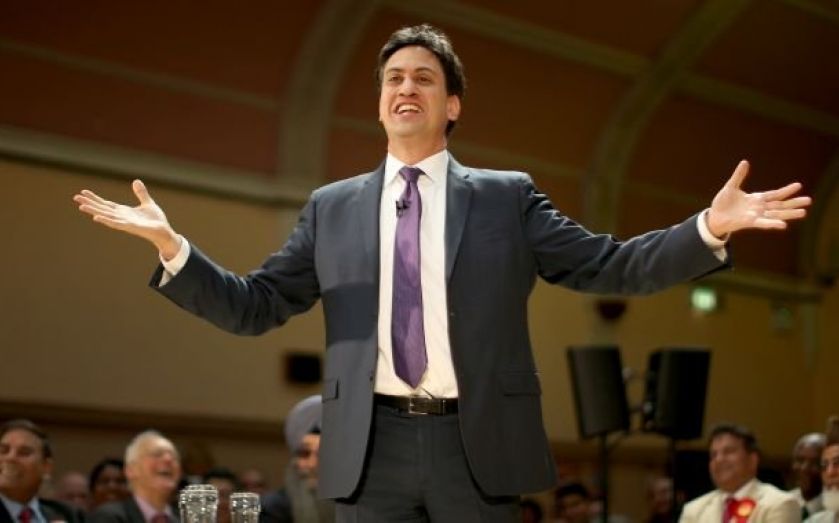Ed Miliband promises minimum wage rise should Labour win next general election

Ed Miliband has promised an increase in the national minimum wage to £8 per hour should his party win at the next general election.
The Labour leader has said it is "not good enough" that one in five people in the UK "are in low pay".
Ahead of the Labour party conference in Manchester this week, Miliband revealed plans to provide a £60 a week boost Britain's lowest-paid workers to the press.
Miliband told the Sunday Mirror the increase would "show how we can change and how we can become a country that rewards hard work once again. Because Labour is the party of hard work, fairly paid."
In response, Conservative culture secretary Sajid Javid said "Ed Miliband would make people worse off with the same failed policies that got us into this mess in the first place – more wasteful spending, more borrowing and higher taxes."
Yet for many Labour's rise will still be insufficient. Earlier this month Trade Union Congress (TUC) delegates passed a motion calling for a minimum wage of £10 per hour, while the Living Wage Foundation argue that in London workers require a wage of £8.80 per hour just to cover the basic cost of living.
Bank of England governor Mark Carney acknowledged the detrimental affects low wages were having on business in a speech to the TUC:
The weakness of pay has, in effect, purchased more job creation. It has not resulted in an unusually high level of profits.
The burden of the Great Recession has been shared across the UK. Profits have been squeezed almost as much as labour costs. Employees have seen their real incomes reduced, but more people are in work as a result.
The fall in real wages in the UK since the financial crisis is the largest such drop since the 1920s. Speaking to The Observer, Miliband said the current government's record was perhaps one of the worst ever in terms of the longest fall in living standards, wages falling, wages rising slower than prices."
John Longworth, director general of the British Chambers of Commerce, argued that although the current minimum wage was too low, businesses did not believe the government should intervene.
There is no doubt that the widening pay gap and a lack of social mobility is detrimental to the UK economy. As the economy continues to improve, businesses agree that the minimum wage must rise.However, businesses are in favour of an evidence based approach to the minimum wage rather than political parties using it to gain support from voters. The government should not intervene in such matters, unless there is market failure. A range of existing mechanisms, such as the Low Pay Commission and Living Wage Commission, are already in place to determine the optimal resolution for workers, businesses and long term economic growth.Politicians should instead focus on implementing policies to raise productivity and improve skills in the workplace – which are the keys to higher wages for all in the future.